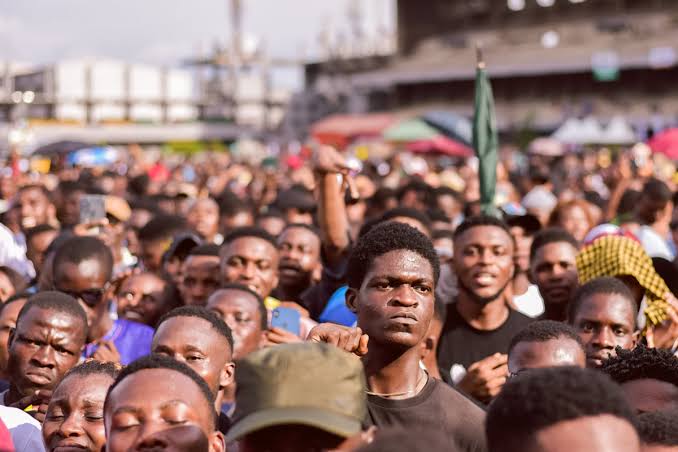Africa
Strengthening Democracy in West Africa: The Regional Partnership for Democracy -By Isah Aliyu Chiroma
As the initiative unfolds, Nigeria’s leadership and operational role will be instrumental in shaping not only the design and implementation of the RPD but also in facilitating knowledge-sharing processes that can inspire reforms across the region. The success of the RPD relies on the commitment of all stakeholders to uphold the principles of democracy, harness local expertise, and work collaboratively towards a brighter future for West Africa.

The Regional Partnership for Democracy (RPD) represents a timely and essential initiative in the pursuit of inclusive, accountable, and resilient political systems across West Africa. This forward-thinking initiative launched by the Ministry of Foreign Affairs of Nigeria with the United Nations Development Programme (UNDP), not only underscores Nigeria’s commitment to deepening democratic governance in West Africa, but also highlights the essential role of regional cooperation in overcoming common challenges to democracy. Countries in West Africa had faced various political and socio-economic challenges, the RPD Programme aims to serve as a beacon of hope for citizens striving for better governance and civic engagement.
Recently, high-level discussions have taken place between key figures involved in the RPD, through series of stakeholders engagement strategy, which brings together the Ministry of Foreign Affairs, UNDP and Civil Society Organization. This African-led initiative aimed to strengthen democratic institutions, by promoting inclusive participation and embedding resilience into governance across West Africa. This reflects Nigeria’s commitment to sustainable, people-centred reform, peace and security efforts.
The RPD Programme is part of Nigeria’s broader Foreign Policy strategy, which is focused on Democracy, Development, Demography and Diaspora. This initiative not only supports sustainable governance, but also empowers communities fostering a resilient and vibrant democratic landscape across West Africa.
West Africa has history of political transitions and democratic challenges, with fragile governments ousted by a spate of military coups, violent extremist, organisations have continued to expand their footprint across territory consisting transnational security risks. The RPD seeks to confront these challenges head-on by leveraging collective resources and secure democratic stability and governance reform across West Africa.
The central goals of the RPD is to promote inclusion, promote reforms and strengthen institutions. Institutional reforms aimed at enhancing the rule of law are essential for promoting public confidence in democratic processes, safeguarding human rights, and upholding justice. The civic space is vital for fostering inclusive governance, as they serve as pillars of democratic legitimacy and accountability.
African countries need to find a way to solve their problems their own way. The RPD emphasizes the promotion of African-led solutions to problems faced within the region. This provides a platform for collaboration among governments, civil society, academia, media, and development partners, the initiative aspires to harness local knowledge and foster innovative reforms.
Nigeria’s unique leadership role within the African Union (AU) places it in a pivotal position to drive regional approaches to governance reform. As one of the largest and most influential countries in West Africa, Nigeria possesses the resources and political will to lead by example. By working closely with the UNDP and other key stakeholders, Nigeria can align national strategies with regional frameworks, fostering more transparent, inclusive, and sustainable democratic outcomes. This leadership role is essential for strengthening democratic reforms and foster regional dialogue.
The RPD can effectively address the root causes of democratic challenges in West Africa. Furthermore, the collaboration between the RPD and UNDP will enhance the production of evidence-based strategies and policies, ultimately leading to more informed decision-making at all levels of governance.
As the RPD is piloted across West Africa, it is essential to establish clear mechanisms for monitoring and evaluation. These mechanisms will enable stakeholders to assess the initiative’s effectiveness and make necessary adjustments along the way. The ability to evaluate progress not only enhances accountability but also reinforces the commitment of all partners involved in promoting democratic governance.
Additionally, involving citizens in this evaluation process can bolster public trust in democratic institutions. When citizens are aware of how their governments are performing in relation to democratic commitments, they are better equipped to hold leaders accountable and advocate for necessary reforms. This transparency serves as a cornerstone for a robust democratic culture and contributes to strengthening the social contract between citizens and their governments.
The Regional Partnership for Democracy stands as a significant step towards strengthening democracy in West Africa symbolizes a collective vision for a region where inclusive, accountable, and resilient political systems prevail, ultimately contributing to peace, stability, and prosperity. By working together, Nigeria, the UNDP, and other stakeholders can cultivate an environment where citizens feel empowered to participate actively in democratic process.
As the initiative unfolds, Nigeria’s leadership and operational role will be instrumental in shaping not only the design and implementation of the RPD but also in facilitating knowledge-sharing processes that can inspire reforms across the region. The success of the RPD relies on the commitment of all stakeholders to uphold the principles of democracy, harness local expertise, and work collaboratively towards a brighter future for West Africa.

























